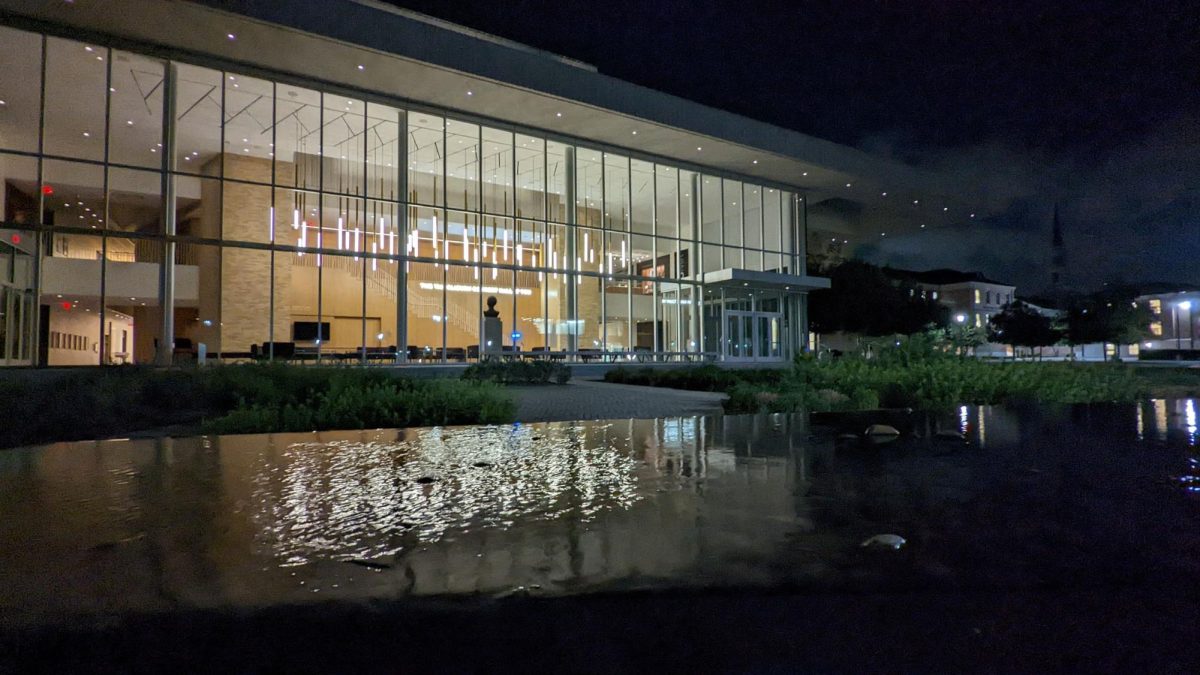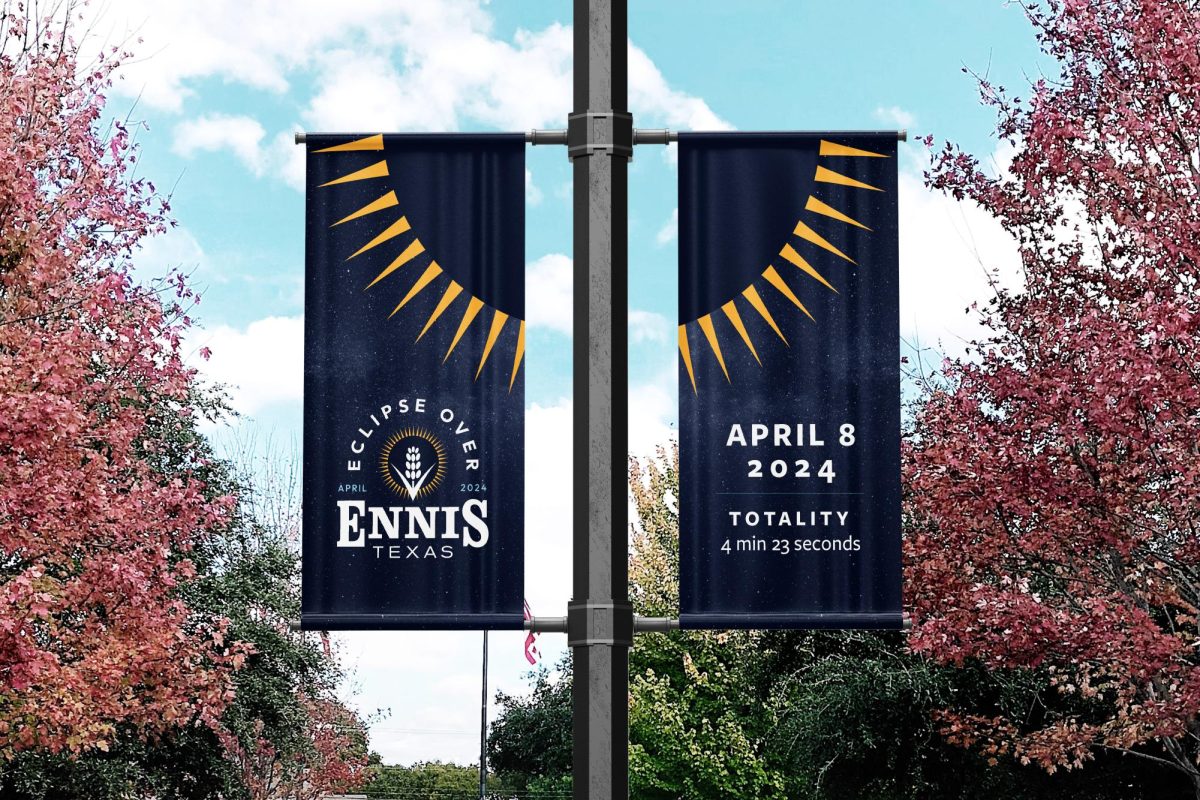For those who went through the traditional elementary school experience as children, the atmosphere of the Alice Carlson Applied Learning Center might seem, well, odd. But like many things in the 109, they’re done a little bit differently.
Most schools don’t let students call their teachers by their first name. Or make a trip to the principal’s office a positive experience. And most students certainly don’t have a garden out near their playground.
However unorthodox the learning experience at Alice Carlson may seem, it’s hard to argue with the results that the school has produced in its 18-year history. For 11 of those 18 years, Carlson was given a “recognized” rating by the Texas Education Agency, which means that 75 percent of students passed the TAKS test. In the 2008-09 school year, Alice Carlson received an exemplary rating, the highest rating a school in Texas can receive.
So, what makes Alice Carlson so different from the rest of the schools in the district? The answer is a teaching method called applied learning.
Alice Carlson was first conceived in 1992, after former FWISD superintendent Don Roberts conducted a study of businesses in the metroplex to determine how well the school district prepared its students for the workforce. The study, which included more than 300 CEOs of corporations, found that while the district taught students the basic skills needed to function in a working environment, it did not prepare them in two key areas: the ability to perform as a member of a team, and the ability for them to problem-solve.
These two key elements are the foundation of the Alice Carlson Learning Center. bases its core learning structure around. After generating some support in the community for a school that specializes in teamwork and problem-solving. Over the summer of 1992, Roberts, with the help of other teachers and staff members, hammered out the mission statement of what type of learning environment Alice Carlson was going to have.
All about activities
Principal Jeannie Robinson has worked at the school since the Alice Carlson was just another elementary school. She has held a number of positions, including teacher and assistant principal. Robinson said she believes in the philosophy that kids work best when they are in the company of like-minded peers. Using the information they were taught in a class, students would apply that knowledge to solve a problem, whether it was created by teachers or is an actual real-world situation- hence the name “applied” learning.
“Our lesson format was basically a small mini-lesson that demonstrates the idea or the skill, then an activity that the kids are involved in, talking with each other, working together, demonstrating their strategies for the entire class, no matter what the content area was,” Robinson said.
A project that students work on is similar to a project an adult might have in a business. There are deadlines, goals, once the project is completed, some sort of product out of the project. Robinson noted it will have an authentic audience, meaning this product was not created just to be graded by a teacher.
Some of these projects are annual occurrences, like “Math-o-Ween”, a school-wide family event night where each classroom creates a math game that demonstrates how much the students have learned in math.
“Families go from room to room, and the kids work the booth and they demonstrate the game to whoever comes to play it,” Robinson said. “Sometimes, kids will wear costumes to the event, and we’ll award whoever made the best costume.”
Robinson’s favorite costume?
“Oh I love it when someone dresses up as Pi (the number 3.14159265).”
Students also have to help advertise the event to parents, organize a theme for the event, choose parameters for the games the students, and even decide on the decorations to include around the school.
Another big focus Carlson has in the learning process is the solving of what Robinson calls “ill-defined problems.”
“Sometimes, there’s a problem or opportunity that arises where they begin working in a ‘project mode,’” Robinson said. “They’ll define the problem as they understand it, determine what work needs to be done, and get themselves into committees, and then each small group defines the course their work takes.”
For example, fifth graders were asked to come up with an idea of how to clean up oil spill in the Gulf. After teachers explained the situation to the students, the students formed groups and used their knowledge about the problem to create their own solution. Using construction paper, the groups drew out their ideas, and accompanied the illustration with a detailed explanation of how this solution would work.
Robinson said the school tries to use these types of real-world problems to create projects to stimulate the imaginations of the students, and to allow them to expand their ways of thinking.
“We talked about the oil spill a lot, because it was something that the adults couldn’t figure out,” Robinson said. “They let that oil spill out for months before they finally came up with a solution. There’s something wrong, we don’t know how to fix it. We asked our kids, ‘How can we stop the oil from flowing out of the oil well?’”
While the program has been successful for many students, Robinson said she doesn’t see applied learning as the absolute correct way to teach developing individuals.
“There’s never one program that’s right for every child, because children are individuals,” Robinson said. “I think what works about our program is that we meet every child where they are, and it’s then our job to help move them forward as an individual, rather than one child of many.”
All in a day’s work
In addition to the core learning experience of Alice Carlson, there are several other activities students can get involved in. There is a news crew that works on delivering the announcements of the day and other basic information about the day’s events. Also, Carlson has an enrichment program where students from third through fifth grade take a test about what topic or activities they are interested in.
Based on those results, students will be assigned to an adult who has a similar interest. Some of the potential areas of interest range from scrapbooking to rain-barrel making. There’s even an Outdoor Learning Center, where kids can plant and maintain a garden of fruits and vegetables than they can even eat — once they’re fully grown, of course.
All of the activities and lessons are based on the idea of holding a personal relationship between the student and teacher. It’s one of the main reasons why the school doesn’t hand out grades in favor of a detailed, personal report about the progress of the child throughout the school year.
That same relationship in the assessment of the students can be seen every day in the classroom. Perhaps the best example is that children call teachers by their first name, eliminating the idea that the teacher is the one in control and is all-knowing.
“We are a group of lifelong learners,” said Christine Jones, president of the PTA. “Whether you are the teacher, the instructor, the tutor, the student, we’re all in this together. I can teach you, but guess what? You can teach me.”
Parental Support
As the president of the PTA at a school with heavy parent involvement, Jones keeps a busy schedule. So busy, sometimes, that she forgot to bring her shoe for her right foot when she came to the school for her interview with a 109 reporter. While her job may be hectic, she said she enjoys every minute of it. A mother of three, Jones currently has two kids enrolled at Carlson, and one who graduated last year.
“I’m very blessed to have a group of parents that want to be involved and who are interested in what’s going on” Jones said. “Because everyone wants to be here so badly, we’re able to have a positive experience. I like to think that my job is the easiest in the world, because the hardest part, getting the parents involved, is not a problem at all. It’s giving them enough activities to do that’s the problem.”
Jones says that her job is to take that enthusiasm that parents have and use it to create productive volunteers who will help the school in any way they can. Jones works with Robinson on a regular basis to help figure out just want the school needs help with. Something the school can always use is money.
“Our school is one of the few in FWISD that is not Title I,” Jones said. [Title I schools receive federal funding determined by the socioeconomic background of the students at the school.] “So we are not getting the funds that most elementary schools in this area get. So we’ve got some ground to make up. We work hard to make sure our building is comfortable for the students, and that we provide as much support as we can for the students we have.”
Students at TCU would recognize one of their big fundraising efforts: parking for football games. For every home game, parents volunteer their Saturday morning to help park cars and facilitate traffic after the end of the game. The school is able to make thousands of dollars each week, which Jones said helps preserve some activities or keep personnel on staff that they might not be able to normally afford.
“Unfortunately, during the summer, the district decided to fire all campus monitors,” she said. “That’s the person in your school who helps make sure that everyone is safe, everyone is in code, everyone is in the building. And, no one has those anymore. So we decided to take that money to keep our campus monitor who had been here for almost 10 years. She’s very much a part of our family.”
Jones said she the value of a Carlson education, now that one of her children graduated from the school.
“It’s very obvious to me what they have compared to what the other students have at the middle school,” Jones said. “It’s obvious who hasn’t had the experience of working in a group. They’re lazy, they’re over-achievers, or they want to be the boss. I’m really glad my kids have had that experience.”
Mike Coffey, a parent of three children at the school, helps assist with the parking initiative and also volunteers for various activities throughout the year. The commitment to being a parent of a student at Alice Carlson is one that requires a commitment of time and one’s resources, but he has found that the reward is very much worth it. As a small-business owner, Coffey has seen first-hand what a lack of experience in group work and problem solving can cause in a working environment.
“What makes a company successful is how well the people work together,” Coffey said. “You’ll get into a lot of companies where they spend a lot of money on the product, but then they spend a quarter of that time in choosing the right people. It’s the single-biggest headache you can have, getting people to work together to achieve a common goal. And that’s what’s so cool about Carlson. They work together to achieve a common goal. I feel that our kids are going to be so much better prepared for the real world because of those people skills.”
The amount of different activities a student can do at the school can seem overwhelming for an outsider. Robinson even said that they ask a lot of out the kids when they come to Carlson. But, she has found that the students are more than able to complete the tasks given to them.
“I think people always underestimate the capability of children,” Robinson said. “What we have found consistently is that the higher we set the bar, the kids rise to it. Sometimes we will set an expectation that we think is really high, and then one of them will exceed it in a way we hadn’t expected.
“It makes a real moment of excitement for us. It lets us know that you can’t set it too high. Obviously, you want to set the bar where most people can achieve it, bit it’s amazing what you can get out of students if you just believe.”





